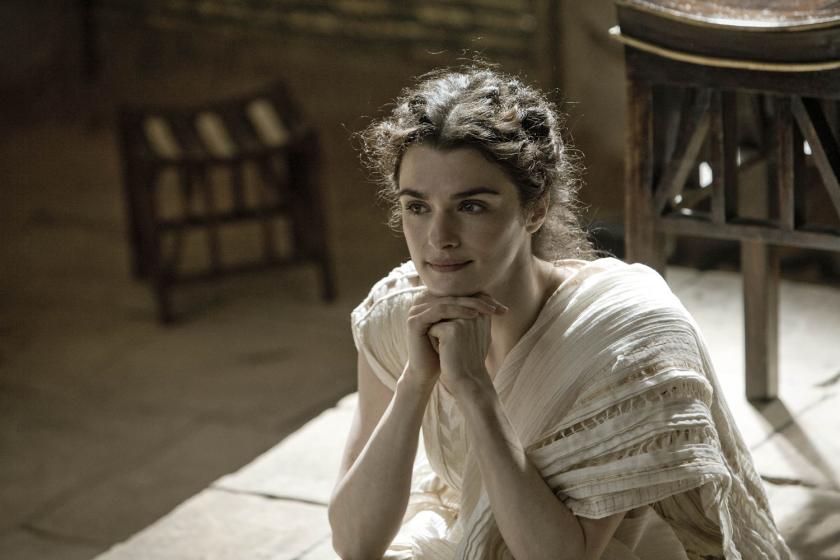Amazing untold stories remain waiting for cinema. Alejandro Amenábar has found one in the female philosopher Hypatia's quest for knowledge during the religious turmoil that gripped 4th-century Alexandria as the Roman Empire fell into the Dark Ages. Somehow he has managed to parlay the freedom given by his 2004 Foreign Language Oscar for The Sea Inside into a cosmic, 50-million-Euro epic of ideas which leaves Hollywood's narrow narrative parameters far behind.
The Spanish director's follow-up to The Sea Inside (starring Javier Bardem as a paraplegic determined to die) apparently took shape after Amenábar and his co-writer, Mateo Gil, began studying the Theory of Relativity. The already vastly ambitious Agora was originally set to span the centuries up to Einstein, before they were grabbed by the almost forgotten story of Hypatia, a beautiful, high-born virgin who spurned suitors to pursue pure thought.
Agora has its share of well-executed, bloody action and romantic intrigue
Living in Alexandria's Great Library - which doubled as a public forum, or "agora" - Hypatia, played by Rachel Weisz, is a sort of intellectual Helen of Troy who captivated a generation of aristocratic students, including the city's future prefect, Orestes (Oscar Isaac), as well as her slave Davus (Max Minghella). In one of the few facts still known about the historic Hypatia, she dampens Orestes's ardour by handing him a cloth stained with her period at a lecture - no surprise that she was a feminist icon of the 1970s. When an attempt to massacre Christians badly backfires and the Library is sacked, she ignores the feuding faiths in order to pursue the truth of the Earth's relationship to the Sun.
Gladiator's revival of Hollywood's sword-and-sandals spectaculars has been revisionist only in the gore-count; it still posits Christianity as the holy happy ending to the pagan Roman Empire. Agora has its share of well-executed, bloody action and romantic intrigue: Weisz's classical beauty and careful, humane intelligence combine in one of her best performances as Hypatia, whom Davus and Orestes remain dangerously smitten by through the years.
But Christianity here is just one more, unusually successful Mediterranean sect, enforced by a Taliban-like monk-militia. "Let he who is without sin cast the first stone," isn't one of Christ's teachings that they've read, as Orestes finds when he's brained by a rock. For anyone with a Christian faith today, it's chastening to watch it instituted with waves of mutual intolerance and slaughter. These finally lap up to Hypatia's feet, her female, intellectual independence now a fatal affront.
Amenábar regularly pans rapidly out past the skies which so obsess Hypatia into the cosmos, from which Alexandria's paroxysms look like squabbles in a petri dish (with an obsession typical of this project, the constellations in the film are accurate to their 4th-century positions). The ancient world has rarely felt so alive, or so urgently connected to a 21st century which in some ways seems barely to have progressed. Agora is so far from stories we're used to seeing in the multiplex that some may dismiss it as Amenábar's folly. But its lucid intellect and passion make it uncommonly rewarding.















Add comment